There is always a kind of inevitability of events in China. With the rush, the masses, the intensity of purpose, things just MOVE!! There is the sense at times that the speed and lack of warning of when something ‘may’ happen can destroy one’s morale and erode the ever-fragile balance. It can be exasperating at times trying to plan but in my case I’ve simply adapted (not always with success). One saving grace is that here in Yunnan where the speed of things is diluted, if one simply rolls with things that come up and say yes more often than no, things will work out. Saying no, after all, often means that one will miss out on some kind of random little gem of unpredictable fun.
And so it goes. Safely perched sipping tea in Menghai planning another trip into the mountains, a pickup of friends arrive with a crunch of gears and the kind of intention in the eyes that I’ve come to love in the locals – a kind of tea-fed frenzy (of the positive kind). It is in the midst of the Dai people’s annual New Years celebrations, otherwise knows as the ‘Water Festival’. The idea is to spray, shoot, and haul as much water on unsuspecting and suspecting victims as possible. Clothes, vehicles, and animals alike get pasted with water in a spirit of wet joy.
In minutes my vague attempts to say ‘no’ to going out to the Dai villages to celebrate New Years have been wiped out by a good friend who forcibly drags me away from my tea. The heat is intense and the sun sends down a dusty series of shafts.
Watermelon fields with their plastic canopies create a landscape of white bubbles. The villages we head towards are tea villages that I’ve visited before, lining the introductory hills of the Pulang Mountain range – home to some of the Pu’erh world’s classics.
Along with the pleasantly inevitable cups of tea, another fluid will be on offer: firewater of the most brutal intensity. Food, in amounts that embarrass will also be on hand. Even within the bastions of the tea world, there is time for other things (which can – I think – be accompanied by tea).
We arrive in dust and stop in a town I had two years previously enjoyed a similar day of rampant celebrations. Here, during the ‘new year’ there must be time to enjoy talk beyond business, drinks beyond an end game and food beyond limit! But, I wonder how far any conversation here can stray beyond the green leaf.
In these indigenous areas there is that, like in the indigenous culture of N. America’s ‘Six Nations’, a time that is known as ‘Ohen-ton Karihwatehkwen’ (Words Before All Else). Words here mean that there is the time taken to actually speak and listen.
Wicker tables have been set up in the huge home with tiny stools surrounding them. Before anything though, tea is served from nearby Pulang Mountain – an astringent teathat takes over the mouth. Quickly beverages of the ‘firewater’ variety are on offer. I stick with tea knowing two essentials: one, that I will not be permitted to drink nothing, and two, that the only beverage besides the local corn whisky I will be permitted to drink is tea. There is a third reason that lingers but is potent is that the local whisky is at every home that I will visit in the coming day. A day of this sharp white whisky will crush my very core.
I’m also aware from that great teacher – personal experience – that my taste buds will be obliterated for any tea that might be served. Often, at these informal gatherings around this tea-stained region (we are literally at the base of Pulang Mountain) a tea will be served that potentially stirs interest. A blank stare and stunned palate will not be able to savour any of the goodness.
I don’t have to wait long before a dispute arises as to whether a tea we are served is in fact a Banzhang. One thick-set little power-plug of a man, “Lin”, insists that the supplier of the tea was either a liar or that our host might be exaggerating his claim. It is good-natured fun but it belies the intensity of the subject matter.
At another table with the guests in various states of sobriety – and not – another discussion goes on about the high prices of local tea. Still another conversation goes on about a local that everyone knows who has apparently left his wife. Unfortunately for him who left, is that his wife and their tea business has thrived with his departure. This brings chuckles and howls of delight from both the men and women at the table.
Tea’s higher prices this year come from two main sources say all. Rising labour costs and the droughts are notching the prices ever-higher. Tea’s every line, every characteristic, and economic ripple is commented on in details that would have a lay observer either slack-jawed or bored out their mind.
In this region tea is omnipotent. Even on this so-called day of rest. We sip it, discuss it, argue upon it and its effects on the body and mind, but we ultimately adore it.
Food and still more food appears in every colour, from every corner of this bountiful region where everything in the earth seems to prosper.
In the next 7 hours locations change, food is heaped higher on yet more round tables and the talk continues and tea’s continued adoration society continues to fuss about it. Sometime in the early hours, I return to my stale little apartment that is home to flying creatures of all sizes. Walking into the lobby the young tattooed man at the front desk looks up and asks, “Bought any tea”?

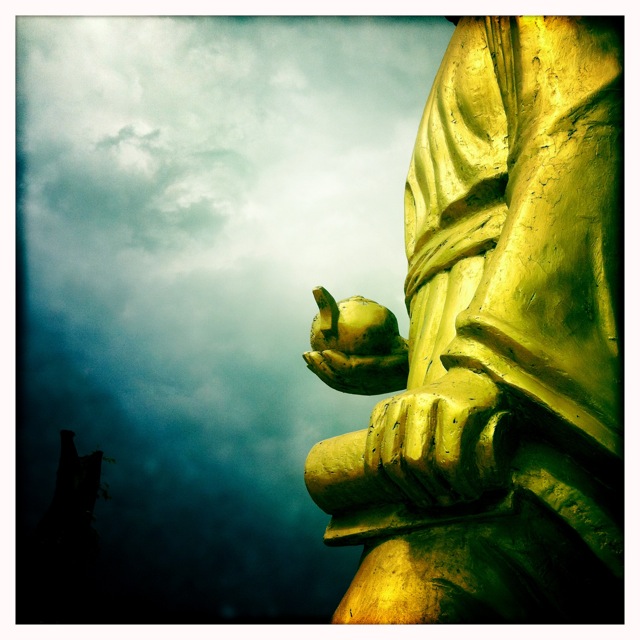
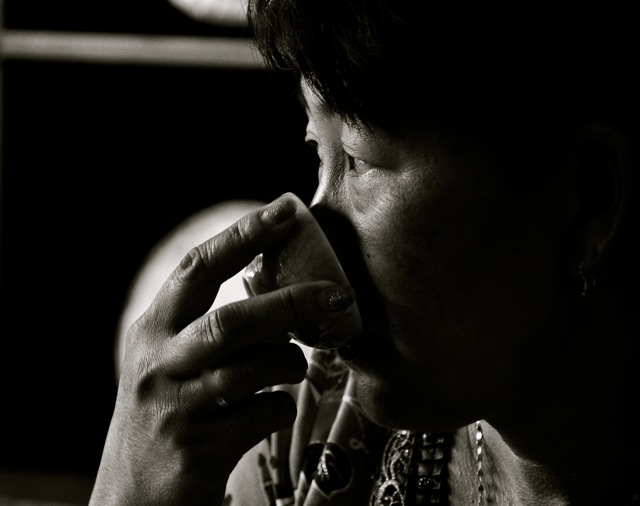
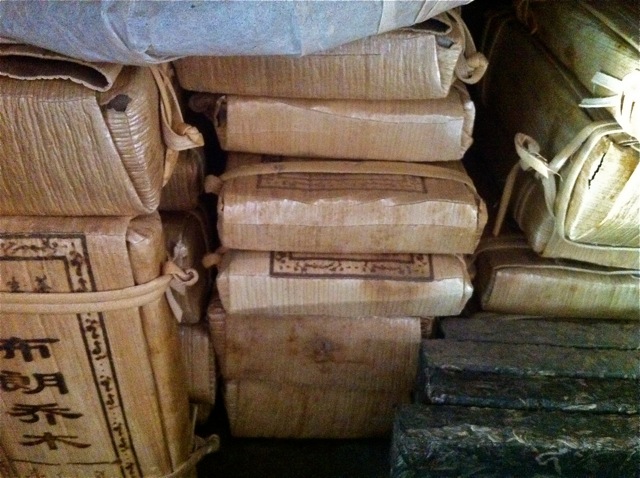
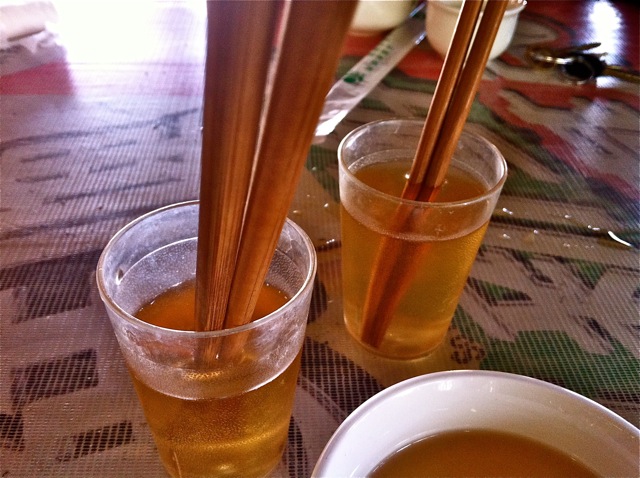
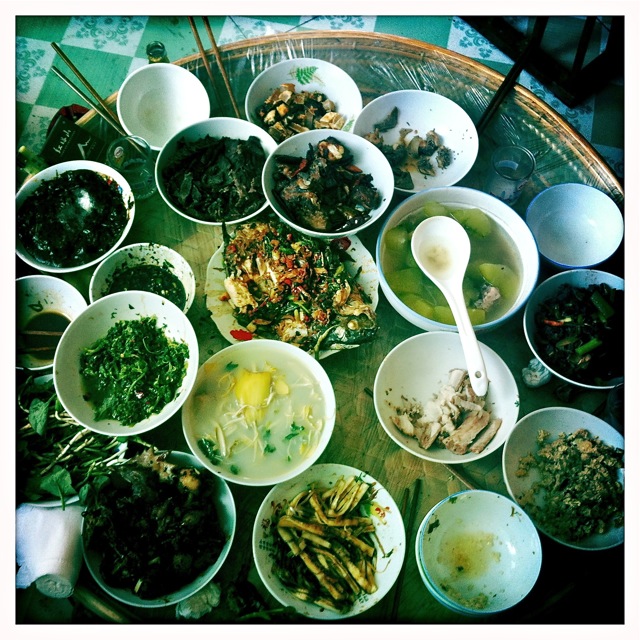
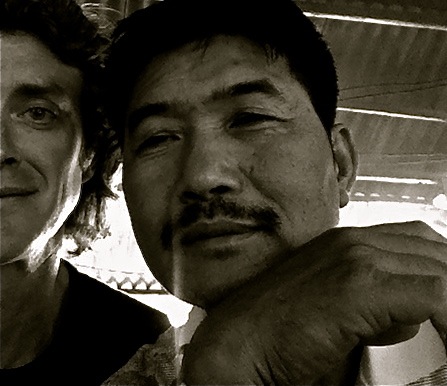
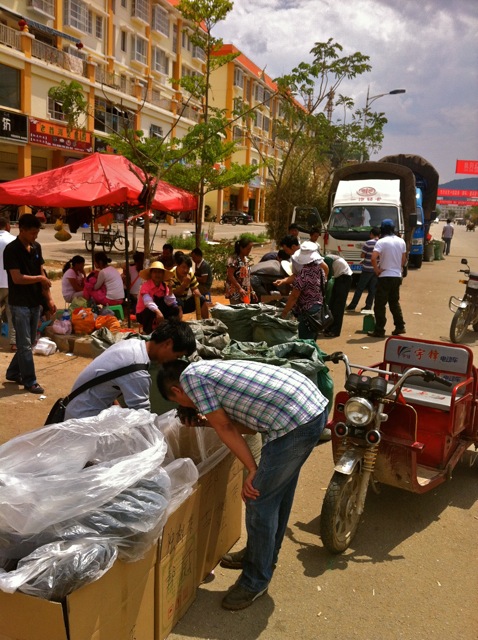
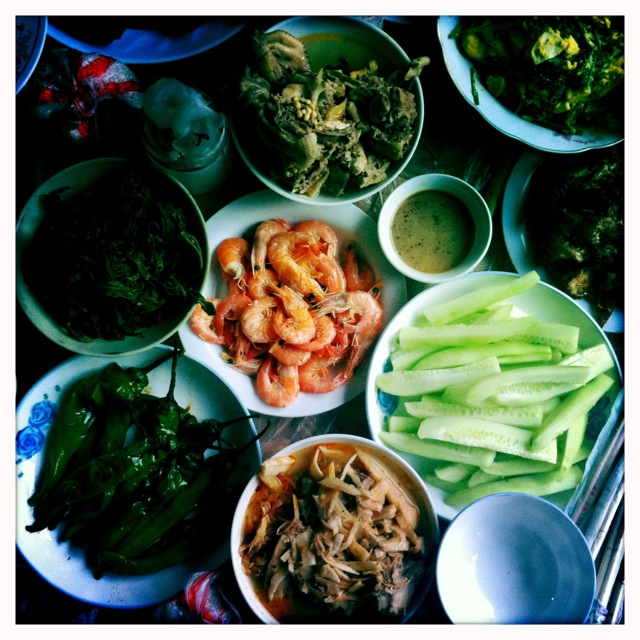
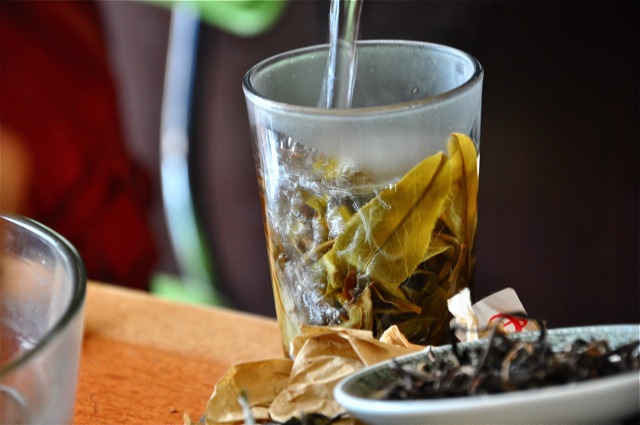
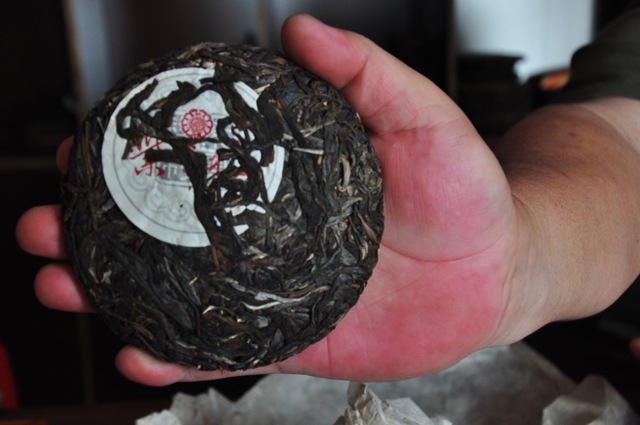
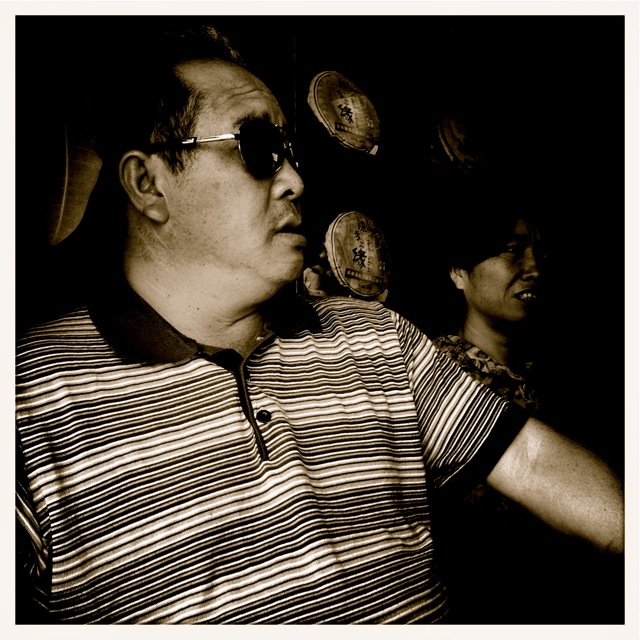
OMG Jeff!! what can I say…. I am so connected to your work…Yunnan is a place I visit so often as we return each time for voluntary work. Thank you so much for stopping by my blog….
are you permanently based in Banna?
I’ve just managed to read a little more….I may be travelling to Shangri La in August….will be back for more tea stories….Have a good one… cheers!!
Drop a line when you’re back in Yunnan. I’m based in ‘Shangri-La’ but Banna is the tea-infused ‘second’ home.
be well,
Jeff